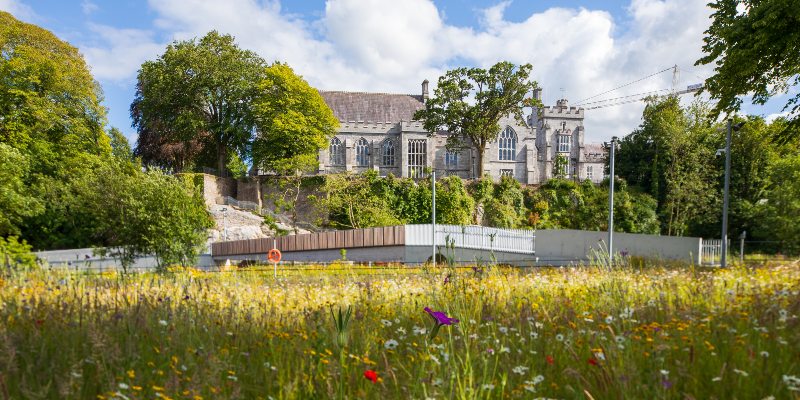In This Section
UCC research powers major climate change report

University College Cork (UCC) researchers have made a significant contribution to a landmark report published today on the impact of climate change on Ireland.
Ireland’s Climate Change Assessment report, commissioned by the Environmental Protection Agency (EPA), brings together the most up to date research on climate change in Ireland to illustrate its impact and the actions needed and urgent changes required to ensure a safe and liveable world.
3 years to develop
Researchers at UCC lead the development and writing of 2 volumes of the 4 volume report — Volume 2 (mitigation) and Volume 4 (transformation) — contributing their expertise on the energy system, land use, sustainability and transformative change. These volumes were a considerable undertaking, taking three years to develop. Seven of the 22 authors were based at UCC and collaborated with researchers, across all four volumes, from Dublin City University, the Irish Centre for High-End Computing, Maynooth University, Ollscoil na Gaillimhe and Trinity College Dublin.
“UCC’s contribution to this important report focuses on what changes we need to make to our energy, food and land use systems in order to reduce our greenhouse gas emissions and achieve climate neutrality in Ireland.” says Professor Brian O Gallachoir, Associate Vice-President of Sustainability. “The science shows that the changes we need to make are unprecedented and wide ranging, requiring significant political will, investment and societal capacity.”
High ambition, low action
Volume 2 shows that there is high-level political ambition and mounting scientific evidence, but there is a gap between ambition and delivering climate mitigation.
“Reducing our reliance on fossil fuels will be hard, but if managed correctly, will be very worthwhile. We have ample clean indigenous alternatives to fossil fuels in Ireland such as wind and solar. This report shows that we have the technical know-how, the political ambition and social support but we must translate this ambition into action this decade”, says Paul Deane, Senior Lecturer in Clean Energy Futures.
“The pathway to 2030 is clear, but beyond that there is need for more debate on exactly how net zero across all sectors is achieved.” says Connor McGookin, Postdoctoral Researcher in Energy and Climate Policy (now at Simon Frasier University, Canada). “However, this should not be a barrier to action. The most important message coming from the volume is that massive and immediate emissions reductions are required across all sectors.”
Volume 4 explores the type of urgent change, ‘transformative change’, that is needed, while delivering benefits, including health, wellbeing, equity and meaningful work, for people in Ireland today and in the future.
Fairness must be at the heart of climate action
“To mobilise all of society in the pursuit of climate neutrality and resilience, fairness must be at the heart of climate action, so that the benefits and burdens are shared” says Hannah Daly, Professor in Sustainable Energy and Energy Systems Modelling. “Transformative change is not just a response to the climate crisis; it's a recognition of the benefits of integrating sustainability, equity, and well-being into Ireland’s development model.”
“Rapid, deep and sustained change is needed to cut emissions from fossil fuels and land use. The good news is that catalysts of change exist, including leadership, social movement and culture” says Róisín Moriarty, Research Fellow in Climate and Policy. “Children and young people in Ireland are catalysing change through their involvement in social movements making sure that climate change stays on the agenda.”
While the assessment was developed to aid policymakers interested members of the public will find it a useful resource.
The report was funded by Department of the Environment, Climate and Communications, with additional funding from the Department of Transport, Science Foundation Ireland and the Sustainable Energy Authority of Ireland.
